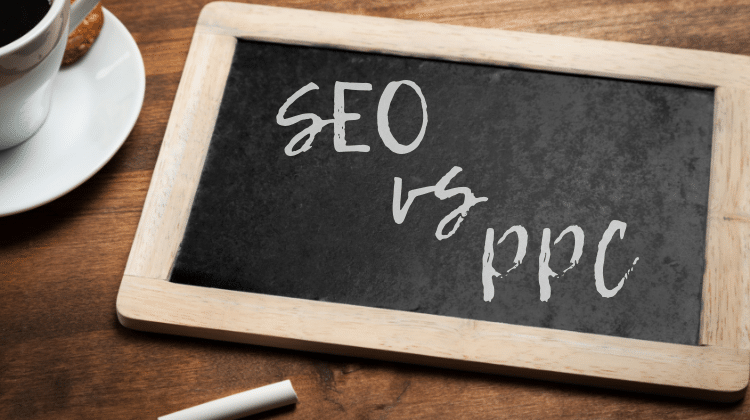
Brought to you by iMEDIA Ltd.:
To say the online marketplace is competitive is to say the sky is blue, the sun is hot, and politicians are less than entirely trustworthy. The digital marketing space is difficult to navigate, which is why there are many options and routes to become successful.
The two main paths are the more organic option of search engine optimization (SEO), or the more artificial option of PPC pages and services. However, these are not entirely either/or strategies. Most businesses employ a mixture of the two to some extent, but when making the choice about which one you lean towards, carefully consider each of the six factors described below.
1. Cost
PPC (pay-per-click), as the name implies, will be the more expensive of the two options, though this is something of an unfair comparison when you consider that SEO can be free. If you’re prepared to put time into content writing, web design, and other bits and pieces of your website, SEO is something that can improved without a direct monetary investment.
Of course, everyone knows time is money, so that’s a deciding factor that could affect whether or not you rely on organic SEO. There are other factors to consider as well, such as just how much more important conversion rates become in PPC, because you’re literally paying for every single click.
2. Timescale
When it comes to how long you’re going to be waiting for results, SEO and PPC offer a starkly different outcome. SEO generally takes much much longer before you fully see the fruits of your labor. PPC will be deliver far more immediate results. Landing inside the top five search results within one week is not realistic with SEO. With PPC, it’s just a matter of the paying right price for the right placement.
3. Purchases
With PPC, the exact orientation and purpose of the page your customers will arrive on is clear. You’ll have your contact details displayed, your catalog lined up, and a clear and simple link to the purchase page in plain sight.
With SEO, things aren’t quite as clear, because when people are searching, they’re more often looking for information first and purchasing second. Also, while SEO can certainly direct a customer to your page, you can’t always control which page of your website a customer first arrives at, meaning purchasing may not be the first purpose of their site visit.
4. Testing
Testing using PPC is much easier than with SEO. The algorithms at the heart of systems like Google and Bing don’t like duplicate content, and since getting high up in search engine rankings can often be a tenuous achievement, once someone has got there, the smartest decision is to focus on keeping things stable at that point.
With PPC, it’s very simple and clear to switch a particular advertisement or page on or off, and since you know exactly which page is landed on when people click on your ads, the effects of any changes in content can be carefully monitored.
5. Scalability
SEO is a complex beast when it comes to scaling. Simply publishing more content on your site is a start, but given the nature of the algorithms involved in displaying search results, it doesn’t always work. By contrast, scaling with PPC is very simple. It’s just a matter of increasing your investments and using that added budget to target more keywords or adjust your daily budget.
6. Mastery
When it comes to SEO vs. PPC, the study and learning curve involved can vary. SEO is certainly a slower learning curve as there is no single moment of ‘deployment’ or ‘launch’ in the same way there is with PPC. However, with SEO, there is far more to learn, so you’ll be need that extra time.
To become an SEO expert you need to understand HTML, JS, PHP, CSS, and more. You can definitely learn PPC faster than SEO, but if you don’t understand it at all when you start, you could end up in a situation where you waste a lot of money.
SEO and PPC are both vital aspects of any online business’s marketing strategy. Exactly how you use them and the ways in which they can be beneficial and/or difficult are highly situation specific. Explore both, study how they can benefit your situation, and make your choice, knowing all the time that there is no one entirely right or wrong answer.